|
Here is Factor #3 of Tactical Intelligence There's a difference between seeing something, and looking at something. When you see things, there is an air of passivity in the action, however when you're looking at something, it's more deliberate, your eyes get into focus, and your brain is activated on the conscious level. This is the difference I'm talking about when I differentiate between Sight and Vision. Sight involves a reaction to the surroundings, while Vision involves awareness, perception, and knowledge. Vision involves anticipation. In football, it's really important to constantly be looking around the field, scanning for information that you can use to your advantage in the current or next play. This ability to read the game is called anticipation. Anticipation is a mix of prediction and expectation. Developing this handy tool will help you in all areas of your game. You'll be able to make smarter choices while attacking or defending, you'll be a step ahead of opponents (or with a hyper-developed level of anticipation, you'll be 5-steps ahead of your opponents *cough* Messi *cough). Whoever you are, and whichever position you're in, you've got to start building your anticipation muscle and understand that the game of football is a thinking game, and though it's great to get wrapped up in the joy of the game, or play in the moment, to be truly great, you've got to start playing ahead of the game. 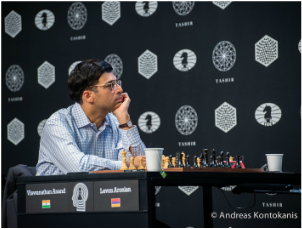 A simple example of this (out of soccer context) is the world of chess. You'd never see a chess master just move pieces around a board for fun, without thinking or strategizing. Every move is deliberate, thought out, meticulous. Trusting your skill and instinct is huge, yet you don't want to solely rely on that. You've got to be involved mentally, stay sharp, and make the right moves on the pitch. You can do this by figuring out where you want the ball to go (where you want to pass it) before you've even received it. This means getting your head up, on a swivel, and periscoping your available outlets prior to getting the ball. Another way to flex this muscle, in a defensive situation, is to read your opponent with the ball. Practice looking at their body language and playing style. If you're the first defender approaching a player, and you learn the person is right foot dominant, you can close him down more effectively, or force him to his weaker foot. If you're not directly closing the player down (let's say you're a defender) you can read if his hips are opening up to strike the ball over the top, so you could gain an extra second in tracking back, or getting a tackle in, or getting your foot in the way, etc. There's a lot you can do with that split second. Vision takes you to the next level of football. It's what all the pros are doing at nearly every moment of the game. Watch for this as you study your favorite players, and once you pick it up, and start practicing, you'll start to feel like the game slows down for you, and you'll be ready to take on more challenges. "See" you soon, -z
0 Comments
Here is Factor #2 of Tactical Intelligence The tactics of a team will determine the strength of a team. It's the bedrock of the playing style and philosophy of play that your team will put into action on the pitch. You definitely need to understand your role on the field (Check out your specific position in This Blog for details!) and in addition to that, you've got to figure out where your teammates are, what their roles are, and then how you can best serve your team while keeping in mind the positioning of yourself + teammates. You might want to go back to that blog and read ALL of the positions, so you get a feel for what each player is doing on your team.
Work as a unit + trust one another Whether you're a part of the defensive or offensive unit (More details on these to come!), you're going to have to work together and work for each other and work off one another. Metaphorically, in a functional relationship, you have to be able to depend on your partner when you need them, and you can lean on him/her when times are hard for you and you're struggling. On the pitch you've got to have faith in your teammate. You need to be able to trust your unit to be there for you, whether that's giving you an outlet pass when you have the ball, or telling you about an opponent behind you. More importantly, YOU need to be that support for your teammates. You need to help lift them up while pushing them to peak performance. This involves being aware of your teammates strengths and weaknesses, and assisting them in these areas when needed. You think Navy SEALs or Marines don't know their squads positioning + attributes? They have that stuff memorized, so that when they're in combat, they almost look like they're one body, moving fluidly, to efficiently + effectively achieve their mission. #SempriFi If you don't know your team's tactics, it's a good time to sit down with your unit + coach to clarify your objectives, so that everyone is on the same page. You don't want to wait until you're out on the pitch wondering why your teammate isn't doing the same thing as you or why your team is bombing up long balls when you thought you were supposed to be keeping it on the deck. Once you have individual strength + awareness, then you can build that up with your unit, and then combine with your entire team to have a totally synched up squad who not only KNOWS what your teammates are doing, but you also TRUST one another to do it. Those are the fundamentals of team tactics + understanding. Cheers, -z 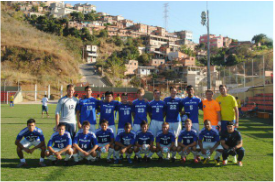 If you want to develop a winning mentality in football, it takes many individuals, it takes the coach, and an environment that encourages hard work, positive attitudes, preparation, et cetera. and that builds up incrementally over an amount of time. You’re going to have to build a large amount of trust in your teammates and with yourself. Your discipline needs to be at a level where you’re demonstrating how you want your players around you to act. You can’t just wish it on your team, you need to show them how it’s done. Action drives others to take action. It starts with you. This begins with confidence in yourself, and preparation is key to that belief. Then, expand that mindset. Hold yourself and others accountable. Communicate, build relationships with your team, so that you can talk and give feedback to on another in a positive way. If there’s no trust, any feedback will be taken with a grain of salt, they won’t perceive it as valuable. But if someone cares about your opinion, they’ll listen, and they’ll elicit real change that will transpire into a higher standard of deliberate intent in both training and in games. While playing with the Pilots, we as a team were committed to one another, and committed to a higher goal. We were really fortunate to have that. Each and every one of us bought into the vision of becoming a championship team who played, served, and celebrated for a greater purpose. With that common goal, we were able to build on a solid foundation with one another, and develop our championship mentality, through standing side by side through each challenge, and working together. That’s what got us to national tournament throughout the years. We prepared with the same mentality, we interacted with that mentality, and it ultimately showed our cohesiveness as a team on the pitch. Build on your foundation, and you CAN have a championship minded team. So how do you develop the mentality? I believe it’s about being surrounded by an environment of people who want the same thing. When you play in a certain environment, with professional minded people, and you have the more impressionable players watching and saying well how can I not follow that. Then you’ll spiral upwards in your teams growth, and you’ll be on your way to winning championships. Cheers, -z P.S. Here's how a Coach can affect this mentality
Simple. Coaches, make sure to control + cultivate this ethic. Please! Put the belief of winning into your players, not getting too down when you lose and too high when you win. Condition your players with the right style of communication ---> Reinforcing good behaviors. As a coach you don’t have much contact with the players, you only have an hour or two during training. So outside of that, it’s up to the players, they’re together in the locker room, doing fitness together, interacting, bonding. Simple Combinations When you’re playing as a fullback and you get the ball from the centreback, what you’ll need to do is open your body up with a positive touch and you give it to your winger up the line, and then you have a few options. Knowing what your winger usually does is important to pick up on and you can chat with them prior to the game, so you know how they like the ball, to which foot they prefer to receive it, et cetera. After you pass the ball, the winger will usually turn and take on the defender but if he’s got a man marking him tightly, then you ned to show after you made the pass to support him from behind. As a simple support, he could drop the ball back to you, then you could bounce it up to the striker or you might have to play it back to the centre back, whichever option is best. If your winger is able to turn with the ball and he starts to take the ball inside, to engage the defender, THAT is your cue to bust your ass to get around him in an overlap, to receive the ball and cross the ball or dribble into the box. Becoming more prominent is the underlap as well. If your winger takes on a player, you might be able to make the run inside, then if he passes you’re in through the channel with your momentum headed towards the goal. Here's a quick Demo of the movements on a board
|
Zak DrakeI love helping players optimize their soccer careers + lives through actualizing their potential. Categories
All
Archives
June 2018
|
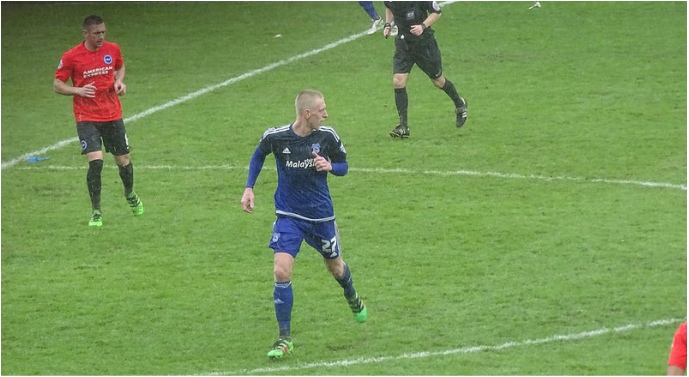
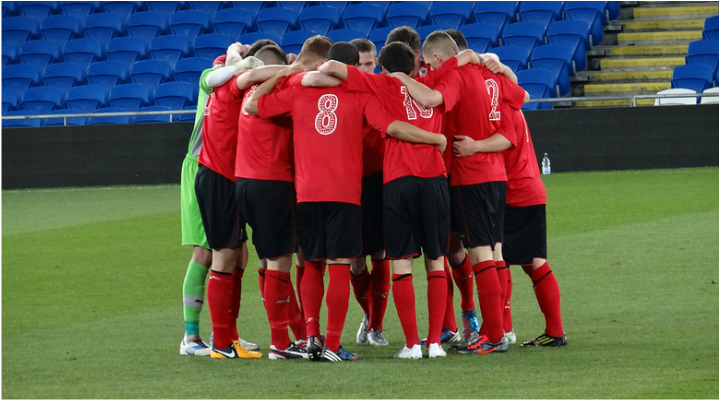
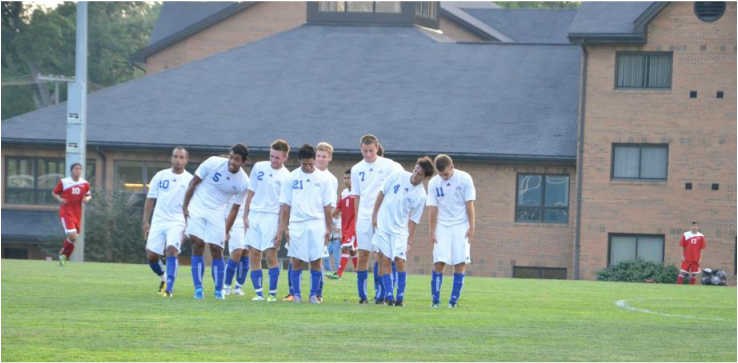

 RSS Feed
RSS Feed